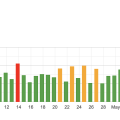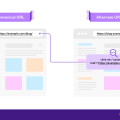You’re putting in the work to optimize your website, and naturally, you’re eager to see the fruits of your labor. “How Long Does It Take To See Results From SEO Efforts?” delves into the factors that influence the timeline for noticeable improvements in search engine rankings. The article guides you through the variables such as your starting point, the competitiveness of your industry, and the strategies you employ, helping you set realistic expectations and stay motivated as your SEO journey unfolds. Have you ever wondered how long it takes to see results from your SEO efforts? You’ve poured your time and energy into optimizing your website, tweaking keywords, and building valuable content. But when will you start seeing those sweet, sweet rankings and organic traffic bumps?

What Is SEO and Why Is It Important?
Before diving into timelines, it’s crucial to understand what SEO (Search Engine Optimization) actually is and why it matters for your website’s performance. SEO involves various strategies aimed at improving your site’s visibility on search engines like Google. If done right, SEO can drive a ton of organic (unpaid) traffic to your website, which is not only cost-effective but also sustainable in the long run.
Factors Influencing SEO Results
1. Competitiveness of Your Industry
The more competitive your industry, the longer it typically takes to see significant SEO results. Industries with a high number of businesses vying for the same keywords can take more time to break into the top search results.
2. Website Age and Authority
Older websites with a proven track record often rank higher more quickly compared to brand-new sites that have yet to establish authority and trust with search engines.
3. Quality and Frequency of Content
Regularly updating your site with high-quality, relevant content can speed up the time it takes to see results. Google’s algorithms love fresh, useful information that answers users’ search queries.
4. Backlink Profile
Your site’s backlink profile—essentially a list of all the links from other websites that point to yours—also plays a big role in how quickly you see results. High-quality backlinks can significantly speed up the process.
5. Technical SEO
This includes site speed, mobile-friendliness, and a host of other on-site factors that can impact your SEO performance. Poor technical SEO can hinder your progress, so make sure your website is in good technical shape.
Typical Timeline for SEO Results
Now let’s get down to the nitty-gritty. How long does it really take to see results from your SEO efforts? Here’s a rough timeline to give you an idea.
| Stage | Timeframe | What to Expect |
|---|---|---|
| Initial Setup | 1-2 months | Audits, keyword research, and initial optimizations. Preliminary data but no significant traffic yet. |
| Early Progress | 3-6 months | Slow but steady growth in organic traffic and initial rankings shifts. |
| Consistent Progress | 6-12 months | Noticeable improvements in rankings and traffic, potential to start seeing ROI. |
| Established Presence | 12+ months | Strong, consistent rankings for multiple keywords, sustainable organic traffic growth. |
The First 1-2 Months: Setting the Stage
Keyword Research
This initial phase is all about laying the groundwork. You’ll start by doing thorough keyword research to identify the terms and phrases most relevant to your business. This is the foundation upon which all your SEO efforts will be built.
Technical SEO Audit
A technical SEO audit involves checking your site for any issues that could be affecting its performance. Common problems include slow load times, poor mobile experience, and broken links.
Initial Optimizations
During the first couple of months, you’ll also be making initial on-page SEO optimizations. This includes stuff like updating meta tags, improving internal linking, and ensuring your content is structured correctly.

Months 3-6: Early Progress
Content Creation and Optimization
By the third month, you should have some good content pieces published and optimized based on your keyword research. This phase is when you start to see minor improvements in your rankings and organic traffic. Nothing earth-shattering, but encouraging nonetheless.
Link Building
Hopefully, by now, you’re also starting to build some high-quality backlinks. This can involve outreach to other websites for guest posting opportunities, or creating shareable content that naturally attracts links.
Monitoring and Adjusting
It’s crucial to keep an eye on your site’s performance during this period. Use tools like Google Analytics and Google Search Console to track your progress and make data-driven adjustments to your strategy.
Months 6-12: Consistent Growth
Expanding Your Content
By this time, you’ll likely have a solid content strategy in place. Continue to publish new, high-quality content regularly and update existing content to keep it fresh.
Building More Links
The next few months should focus heavily on expanding your backlink profile. The more authoritative sites that link to yours, the better.
Technical SEO Refinements
You’ll also want to keep refining your technical SEO. Re-audit your site periodically to ensure it’s running smoothly. Your load times should be quick, your mobile experience should be stellar, and any technical issues should be promptly addressed.

12+ Months: Established Presence
Solid Rankings
By this point, if you’ve been consistent with your SEO efforts, you should see your site ranking well for multiple keywords. You’re not chasing rankings anymore; you’re defending them.
Sustainable Organic Traffic
You should also see a significant amount of organic traffic flowing to your site. This is the stage where your efforts start to really pay off in terms of ROI.
Evolution Over Time
SEO isn’t a one-and-done deal; it’s a long-term investment. Even once you hit that 12-month mark, you’ll want to continually refine and evolve your strategy to stay ahead of the competition.
Measuring Your SEO Success
Success in SEO isn’t just about hitting certain milestones. It’s also about measuring your progress accurately and making data-driven decisions. Here are some key metrics to keep an eye on:
| Metric | Description |
|---|---|
| Organic Traffic | The amount of visitors coming to your site through search engines like Google. |
| Bounce Rate | The percentage of visitors who leave your site after viewing only one page. |
| Keyword Rankings | How well your site ranks for your target keywords in search engine results pages (SERPs). |
| Backlinks | The number of external sites that link to pages on your site. |
| Conversion Rate | The percentage of visitors who take a desired action on your site (e.g., make a purchase, fill a form). |
Tools for Monitoring SEO Performance
Google Analytics
A robust tool for tracking a wide range of metrics from bounce rate to conversion rate. It’s essential for understanding your site’s performance and making data-driven adjustments.
Google Search Console
This free tool helps you monitor, maintain, and troubleshoot your site’s presence in Google Search results. It can give you insights into how Google views your site and help you optimize accordingly.
SEMrush or Ahrefs
These are fantastic tools for tracking your keyword rankings, backlinks, and competitors. They provide in-depth analytics that can guide your SEO strategy.
Common Pitfalls and How to Avoid Them
Impatience
One of the biggest mistakes people make is expecting overnight results. SEO is a marathon, not a sprint. Consistency and patience are key.
Poor Quality Content
You might be tempted to churn out lots of content quickly, but quality always trumps quantity in SEO. Make sure every piece of content is valuable and well-researched.
Neglecting Technical SEO
Even the best content won’t perform well if your site has technical issues. Regularly audit your site and address any problems promptly.
Ignoring User Experience (UX)
A seamless, intuitive user experience can significantly impact your SEO results. Make sure your site is easy to navigate and provides value to your visitors.
The Bottom Line
SEO is a complex and ongoing process that involves much more than just sprinkling keywords throughout your website. It requires a well-thought-out strategy, consistent effort, and a lot of patience. Typically, you can expect to start seeing some modest results within the first 3-6 months, with more noticeable progress by the 6-12 month mark. By staying committed and continually refining your approach, you can achieve strong, sustainable results that provide a solid return on your investment.
So, if you’re wondering how long it will take to see results from your SEO efforts, remember: it’s a journey, not a destination. But with the right strategy and a little patience, you’ll get there.
Feel free to drop your thoughts or questions about SEO in the comments below. We’re all in this together, and sharing insights can only help us all improve.
Happy optimizing!











